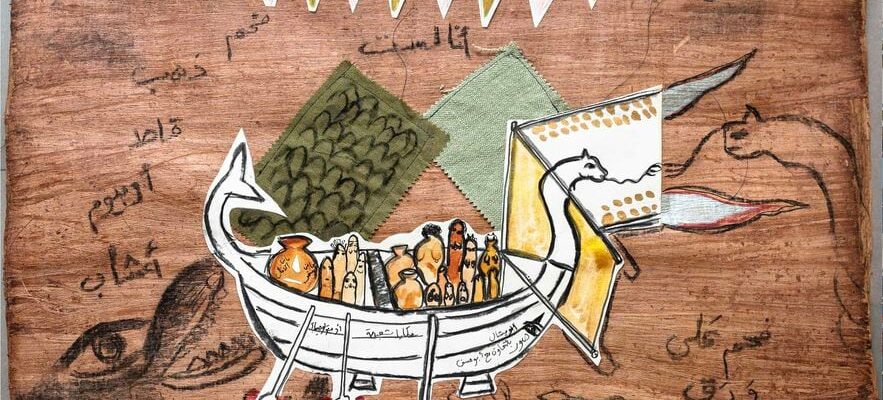From Titian to Fernando Botero, via Veronese or Picasso, many artists have reappropriated the myth of Europa, this Phoenician princess kidnapped by a Zeus transformed into a white bull from whom she will have three sons. In the Western representation, very largely carried by men, the submission of the woman forced to unite with the Greek god carried by the ancient story has transformed, over the centuries, into consent. Born in Beirut in 1978, on the remains of Phenicia, visual artist Mounira Al Solh stands on the fringes of the male point of view.
At the Venice Biennale, she in turn revisits the myth by seasoning it with an egalitarian sauce, through a monumental work which occupies the entire 180 square meters of the space allocated to Lebanon. In her rereading, Europe manipulates Zeus: it is she who carries out the kidnapping and spins her prey with her feet like a ball. A way of “pushing the deconstruction of gender stereotypes to the extreme by reversing roles and sexes”, underlines curator Nada Ghandour.
Under the title Dancing with your myth, the artist deploys a multimedia installation made up of 41 pieces – drawings, paintings, sculptures, embroidery, video –, designed by Karim Bekdache. It revolves around a boat on the verge of capsizing, for the creation of which Mounira Al Solh collaborated with one of the last Lebanese craftsmen capable of building a Phoenician boat. Completely open-plan, the course invites you to a real immersion orchestrated by the balance of power. On the one hand, the pictorial or graphic compositions which, by recounting the journey and the aspirations of Europe, question gender norms and advocate the fight for parity. On the other, a collection of masks with disturbing faces, inspired by Phoenician amulets, which symbolize the control operated by men. In the center of the system, on the screen sail of the skiff, a twelve-minute film is projected which brings to life the motifs, all drawn from Phoenician history and art, appearing on the works.
Mounira Al Solh, “Dancing with your myth” (2023).
/ © Courtesy of the Artist; Sfeir-Semler Gallery Beirut/Hamburg © LVAA © Photo Quinn Oosterbaan
In this reinterpretation of one of these ancient myths which, most often, see female figures mistreated – in turn raped, murdered or repudiated – it is obviously contemporary society which is questioned. These women who, here and there and to varying degrees, suffer an imposed fate, but also their capacity for resilience, like Europe whom Mounira Al Solh transforms into the mistress of her destiny, freed from all social constraint, free to decide and generate in full consciousness.
For the visual artist, the mythology inherited from Phenicia also serves to defuse the recent disasters that have occurred in her native country: “In these moments of increasing adversity, you must cling to deeply rooted elements which serve as unshakable pillars. ” What interests him, beyond the beauty of the myth, is to explore “how, for scientists, these unproven stories often contain more truth than those scientifically proven“. That of Europe is, for the artist, an opportunity to question the notions of exile, these incessant comings and goings carried out by the Lebanese as by the Phoenicians before them, while shaking up, not without humor, the image of victimhood. associated with woman.
